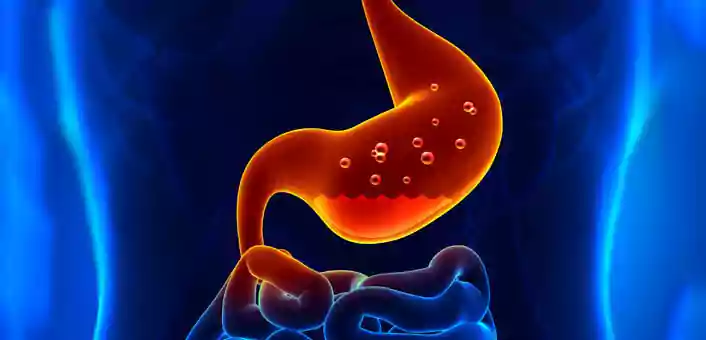
Acid Reflux
What Causes Acid Reflux?
Mar 11, 2016We need adequate stomach acid to break down and digest food. We also need it to protect ourselves from unwanted pathogens that we inevitably come in contact with through the food we eat, or elsewhere. Researchers say that when there is insufficient acid in the stomach, undigested food passes into the gut, where it rots. This undigested food is digested by bacteria that produce gas. This gas, when produced, puts upward pressure on the stomach, causing the acidic contents of the stomach to slosh back up the throat. This is what is known as acid reflux or heartburn. If left untreated, it can lead to gastro-esophageal reflux disease (GERD) and other annoying (and potentially serious) issues.
What is GERD?
GERD or Gastroesophageal Reflux Disease affects nearly 20% of adults in the US. The worldwide market for antacids is estimated to be in excess of $10 billion annually. That’s a lot of heartburn and indigestion! It may be surprising to learn that the reason we have too much acid in the wrong place (hello, heartburn!) is because we actually have too little of it in the right place (our stomach, where it belongs). Try to think of the digestive process as a burning fire. We need to have strong digestive fire to break down and digest the food we put into our bellies. Otherwise, it will just sit there and rot. Dealing with GERD symptoms by trying dietary supplements will help in reducing this ‘stomach-churning’ issue. It shows that more and more people are getting increasingly interested in what causes acid reflux.
Why We Don’t Produce Enough Stomach Acid
Stomach acid production is stunted every time we experience stress. It could arise from a deadline at work, an argument at home or eating a food our body doesn’t like. Antibiotics can have this effect too, since they kill off good bacteria (which help digestion), along with the bad. Eating meals without chewing properly, missing meals and eating too many processed foods and sugars make the problem worse. They prime the body to experience symptoms of GERD.
The normal aging process impairs acid production too. Research shows that with age, stomach acid levels drop. In one study, U.S. researchers found that more than 30% of men and women past the age of 60 suffer from atrophic gastritis, a condition marked by little or no acid secretion. Some or all of these bundled together sets us up for GERD.
Adequate Stomach Acid Equals Better Health
In their book, “Why Stomach Acid is Good for You,” authors Jonathan Wright, M.D. and Lane Lenard, Ph.D., argue their case: “If, because of inadequate stomach acid, our breakfasts, lunches, and dinners aren’t being digested, then we can’t absorb the amount of nutrients from that food that Nature intended. How can we expect to stay healthy if we have chronically poor nutrient absorption due to incomplete digestion?”
So, improving the production of stomach acid might be the answer. That’s just one part of the puzzle, though. Digestion is a system-wide process, as food travels all the way from our mouth to our anus. If any part of this long journey falls out of balance, it could cause an issue.
It’s About More Than Just The Stomach
Looking beyond the stomach, we need to ensure that the liver and gallbladder are working in harmony with our digestive tract. The bile that is produced in our liver and stored in the gallbladder is emptied into our small intestine to help us digest fatty foods. This bile must be of the right quality and thickness, or rather, thinness. Bile that is too thick can turn to sludge and may stop flowing smoothly, like it should. In instances like this, some people even go on to develop gallstones and other issues with their gallbladder. Food-based remedies that may help this situation include taking traditional bitters before eating and consuming foods like beets and lemon to help keep the bile clean and thin.
Food must also move down the small and large intestines at the right rate so that nutrition is absorbed correctly. The bacteria that live in our intestines and help us digest and absorb our food must be of the good kind, otherwise we won’t be able to eliminate waste efficiently.
How Do I Treat GERD Symptoms?
The next time you feel that annoying acid reflux or indigestion, know that it’s the sign of a digestive system that is out of balance. Instead of popping an antacid or PPI (Proton-pump inhibitor), you must to learn to balance your system naturally. Here’s a list of natural supplements you can look at to help bring your system into better balance.
Know more about our Programs:- We take the guesswork out of weight loss




